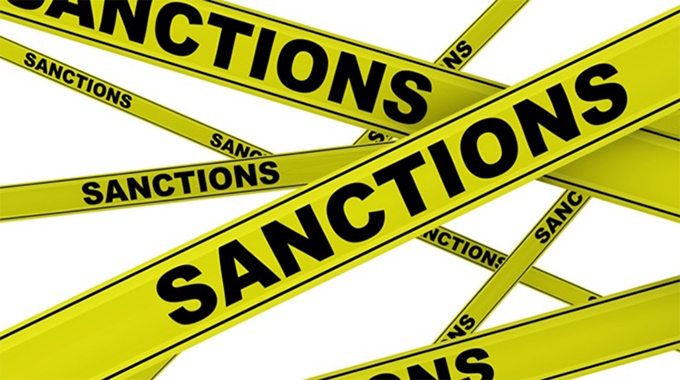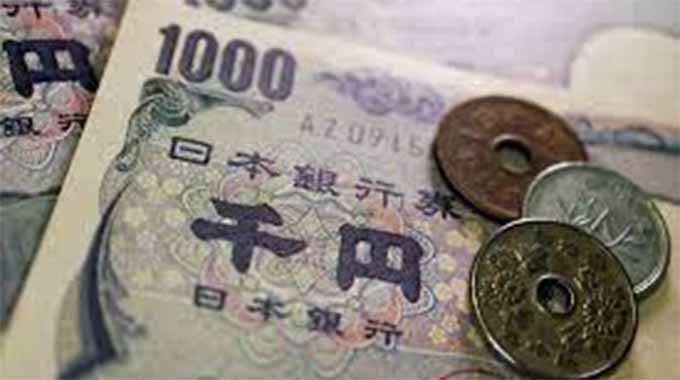It’s media’s duty to debunk false narratives on sanctions

Ranga Mataire
Group Political Editor
The United States last week “reviewed’ its unilateral sanctions on Zimbabwe by adding one individual and removing 11 others.
In a week where the world witnessed the burial of Queen Elizabeth of England, it appears the news of the sanctions “review” was treated rather tepidly and rarely occupied prominent spaces in the local media.
There are basically two reasons for this second rate treatment of the US sanctions on Zimbabwe by the local media.
First, the sanctions “review” was overshadowed by the burial of Queen Elizabeth, whose death was treated by some Western media as the demise of some kind of deity.
And as has become the norm, the local media latched onto the news of Queen Elizabeth’s death and funeral by mimicking both the tenor, pitch and slant already set by the dominant Western media.
The other probable reason for demoting the sanctions story could be fatigue. Journalists are human beings prone to feelings of exasperation over an issue.
It was thus not surprising that an issue that has been a scar on the conscience of many locals for over two decades found itself on the periphery of diary items.
Decision makers in newsrooms probably felt anything not the actual removal of the sanctions was not worthy of prominent spaces.
I tend to disagree with the two probable motivations behind relegating the sanctions story and here is why:
While the Queen’s death was undeniably a very big story given her stature and longevity at the helm of the British royal family, the sanctions story was an equally critical story to a Zimbabwean audience.
The sanctions story is an existential issue because it defines who we are, our sustenance or lack of it as a nation and shapes how the world perceives us as a nation.
In short, the sanctions story is a moral, ethical, legal and political issue that symbolises Zimbabwe’s quest for nationhood and autonomy against the West’s mission to make us an example of what not to do for any country seeking to correct historical wrongs of colonialism.
The sanctions story also exposes the obstinacy and duplicity, disingenuousness of the West particularly the United States in poking its nose and accusing other nations of the very sordid things that are prevalent in its backyard. For over two decades, Zimbabwe has been economically strangled by the sanctions and had to do what it could to sustain itself, amid several natural disasters including the Covid-19 pandemic.
We are a landlocked southern African country that sought to correct a historical disparity on land and got punished for it.
This is Zimbabwe’s crime. An existential “crime” that local media fails to contextualise or deliberately marginalises.
The media owes it to future generations to put everything in perspective.
The story of Zimbabwe’s land and how the country was punished for daring to redistribute the resource to its own citizens is an enduring story.
Palestinians in Gaza and West Bank have jobs in Israel and yet they are fighting and dying for land because without control of your land and country — you are nobody.
Land is sacrosanct. It is the same in Zimbabwe.
In my view, the story of sanctions should have been amplified especially coming at a time when South African President Cyril Ramaphosa had just met US President Joe Biden where he raised concern over the economic embargo.
We cannot underestimate the political capital South Africa possesses as a regional and African powerhouse.
Any meeting that South Africa has with the world’s super power must surely arouse the interest of any right thinking journalist.
While we may not entirely agree with immigration narrative as one of the negative impacts of the sanctions, any right thinking Zimbabwean applauds the action taken by Mr Ramaphosa that impressed upon Mr Biden to consider removing sanctions.
SADC and the African continent have consistently pronounced their stance against sanctions. It is, therefore, embarrassing and highly contemptuous for the United States to disregard the opinion of the African bloc.
Nothing justifies the continued stay of sanctions on Zimbabwe and the whole world can now clearly see the issue of human rights is a smokescreen for something more sinister.
As a call to duty and in defence of national interests, local media must never get tired of exposing the sanctions fallacy.
Journalists must seriously expose the fallacy that Zimbabwe “poses a serious threat to US’ foreign policy.”
In what way is a small landlocked country whose foreign policy is anchored on “being a friend to all and an enemy to none” poses a threat to the world’s superpower?
It must be made clear that the economic sanctions on Zimbabwe are unilateral and incompatible with international human rights norms and standards.
It is a serious show of contempt for the United States to completely ignore and disregard the UN Report of the Special Rapporteur on “the negative impact of unilateral coercive measures on the enjoyment of human rights” tabled recently by Professor Douhan after her work visit to Zimbabwe in October last year.
In her report, Prof Douhan categorically called for the removal of sanctions and articulated their negative impact on public institutions, the economy in general and on ordinary people. It is rather amusing that soon after Prof Douhan’s report at the UN, the Biden administration removed 11 individuals (mostly dead) and added one individual, Deputy Commissioner General (Crime) Stephen Mutamba on the sanctions list.
Notwithstanding the fact that removing dead people is the most natural thing to do and therefore a non-event, the US remains adamant that the sanctions do not affect ordinary people, banks or the economy in general even when a UN report states exactly that.
It is comical that a month before the so-called sanctions review, ‘Foreign Policy’, a newspaper that speaks on behalf of America’s State Department releases an article that sensationally describes how some US officials that just had a meeting with a local political activist had their car chased and harassed by alleged local intelligence operatives.
It’s a ludicrous piece that plays into the impressionable American psyche.
Further to this, they also claimed that Zanu secretary for administration Cde Obert Mpofu’s children and Foreign Affairs and International Trade Minister Dr Frederick Shava had been appointed to ZEC, which is not true.
Both these false narratives were deliberately manufactured to justify continuation of sanctions.
These are the things that local journalists should be alert to because a harm to Zimbabwe’s image has a bearing on every citizen – either Zanu PF or opposition.
As October 25 draws closer, a date set aside by SADC as an anti-sanctions day, no one is fooled by the lame removal of dead people from the sanctions list.







Comments